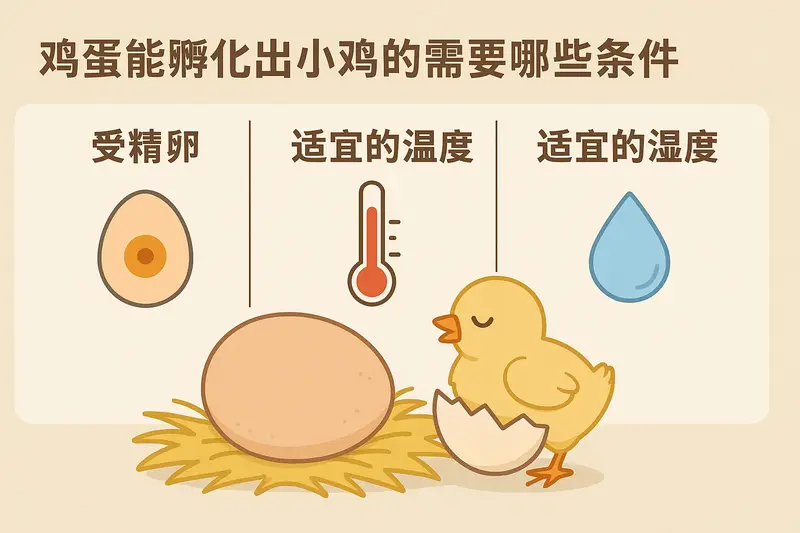Only fertilized eggs can hatch into chicks. These eggs usually come from flocks with roosters. Choose fresh, intact, and normally shaped fertilized eggs for incubation.
Temperature is a critical factor during incubation. Maintain a consistent temperature between 37.5°C and 38°C. Deviations can adversely affect embryo development or cause mortality.
Humidity is vital for proper embryo development. Keep humidity around 60% during the early stages, reduce to 50%-55% in the middle, and increase to 65%-70% near hatching.
Regularly turning eggs prevents embryos from sticking to the shell. Turn eggs 8-12 times daily to ensure even heat distribution.
Embryos require oxygen for development. Ensure good ventilation in the incubator to supply adequate oxygen and keep carbon dioxide levels below 1%.

Egg Storage: Before incubation, store eggs at 10°C to 15°C with moderate humidity, avoiding direct sunlight.
Incubation Period: Chicken eggs typically hatch in about 21 days, requiring strict control of temperature and humidity.
Hygiene Management: Maintain cleanliness of the incubator and surrounding environment to prevent bacterial infections.
Select High-Quality Eggs: Ensure eggs come from healthy flocks with high fertilization rates.
Use Reliable Incubation Equipment: Choose incubators with stable performance and automatic temperature and humidity control.
Regular Equipment Checks: Monitor incubator functions regularly to detect and address issues promptly.
Record Incubation Data: Keep detailed records of temperature, humidity, and egg turning to analyze and improve processes.
animal tags: Eggs hatch chicks
We created this article in conjunction with AI technology, then made sure it was fact-checked and edited by a Animals Top editor.